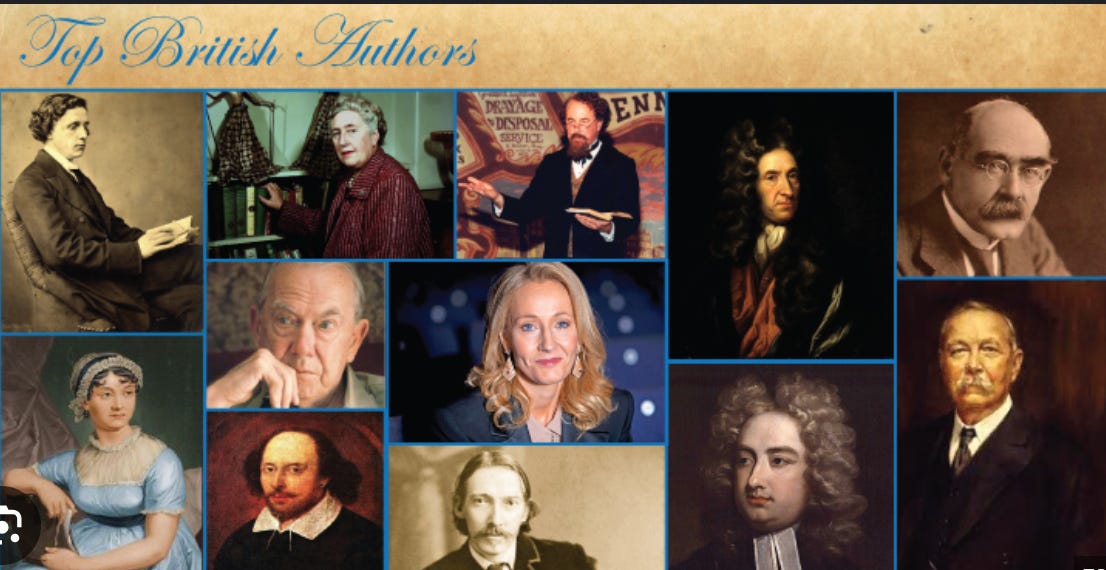"you think you could make a must read list for us dummies??"
If you are 21, one thing that would be useful is to discover how much better old Brits were at prose. It can be challenge to get used to various classic British rhetorical styles, but it's worth doing. Here are some high Return on Investment selections that are rewarding without being too hard or too long.
Waugh's Scoop is high on the short list of books that are both sensational in classic prose style and a quick read. The opening is a little scattershot, but keep reading at least until the second time "cleft stick" comes up.
Read the autobiography Churchill wrote for boys in 1930. It's called A Roving Commission in Britain and something generic like My Life over here. It's a great boys' adventure story, in part because Churchill makes no attempt to impart mature wisdom to his tale. When he's describing what his life was like when he was four, he exhibits only the values of a four-year-old boy.
Read a few chapters of Edward Gibbon's Decline and Fall of the Roman Empire. Read at least until you laugh at his jokes.
Paywall here:
I extracted a bravura chunk of Macaulay's History of England a month ago.
Read the opening of Adam Smith's Wealth of Nations about the pin factory. This is a slow read, but the pin factory example is great.
Read the appendix to Orwell's 1984 on "Newspeak." Orwell's magazine-length journalism is tremendous, too.
Read a Kipling short story, such as The Man Who Would Be King. If you like the short stories, try Kim, which is dazzling high literature. For poetry, If would rank near the top of poems worth reading at 21.
Open the the second half of Boswell's Life of Johnson at random and read until some transcribed conversation seems funny.
Wodehouse's Jeeves and Bertie comic novels peak around 1940, such as Jeeves in the Morning.
Swift's Gulliver's Travels is about the earliest readable British prose: the least known of the travels, the third, to the island of Newtonian scientists, is the funniest.
Among more recent books ... Not quite in the same league in terms of prose style, but John Keegan's The Face of Battle. A great book about the British in World War II is Richard Adams' novel about talking rabbits, Watership Down.
Paul Johnson can be a spectacular historian. Modern Times from 1983 is the greatest neoconservative book. His earlier book from 1972 when he was still on the Left, A History of the English / The Offshore Islanders is an awesome work of Orwell-style socialist nationalism.
Plays are usually a tough read. You'll notice that nobody reads screenplays for fun. Playwrights write plays to work on the stage, not on the page. Julius Caesar is the most readable of Shakespeare's plays.
Shakespearean criticism is an important genre on its own. Read the critic William Hazlitt on a Shakespeare play you are familiar with. He's probably the best prose introduction to the early 19th Century Romantic period.
Among Tom Stoppard's plays, Arcadia is likely his masterpiece, but Travesties is a good initial goal. It's a play about how Lenin and Joyce were in Zurich in 1917. It is, in part, a parody of Oscar Wilde's The Importance of Being Earnest, with the main character, who is very much the hero, being a very British upper class twit in the mode of Ernest, or not Ernest, the other one (Algernon). He tells Lenin off good.
I read Wilde's Earnest at 20 and didn't get it at all. However, Camille Paglia's chapter on Earnest in Sexual Personae is hilarious because she understands how extremely gay the play is. (The 1952 movie of Earnest with Joan Greenwood is pretty funny, better than the Reese Witherspoon version of a decade ago.) If you get into Wodehouse's Bertie and Jeeves books, however, you can read Travesties without reading Earnest. Think of Travesties main character as Bertie Wooster and it works fine.
Poetry is another tough read for 21st Century people. For T.S. Eliot, I'd start with Prufrock, for Romantics, I'd start with Coleridges Kublai Khan, Shelley's Ozymandias and Wordsworth's more political sonnets, such as Milton, London 1803, and For Toussaint L'Ouverture. The section in Milton's Paradise Lost about Lucifer being cast down into Hell is spectacularly in touch with today's comic book movie tastes, but, famously (as Dr. Johnson said), nobody every wished the entire poem longer.
In short, the Brits are just better with English than us Americans.



Just about everything by Waugh is worth reading! Also pretty sure the volleyball scene in Top Gun was loosely based on “Earnest.”
Kipling’s historical poems like “Norman and Saxon” or the “Dane-geld” are a good low-effort way to get an understanding of the classic view of English history.